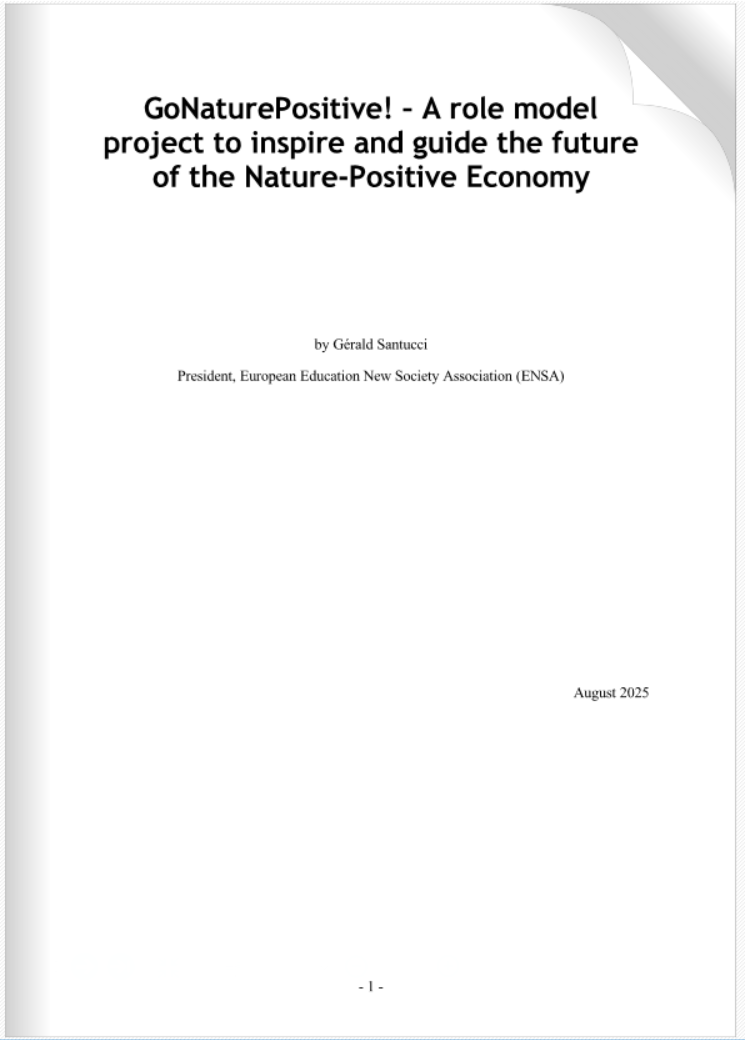by Gérald Santucci, President, European Education New Society Association (ENSA) –
“A nature-positive economy demands more than ambition – it requires embedding nature at the heart of public policy, business strategy, and financial systems, not as a trade-off, but as a foundation for long-term resilience and economic security.”
Dr. Benjamin Kupilas, Senior Fellow and Coordinator of Biodiversity Ecologic Institute
Few scientists object today that the impacts of human actions on our planet are now so large that a new phase of Earth’s history is beginning. The old forces of nature that transformed Earth many millions of years ago, including meteorites and mega-volcanoes are joined by another: us. We have entered a new geological epoch called the Anthropocene, based on humanity’s influence on Earth, even if in 2024 the International Union of Geological Sciences (IUGS) rejected the term Anthropocene as a formal unit of the geologic timescale.
Several studies suggest that Earth is well on the way to its sixth mass extinction, if not in a mass extinction already. Compared to the previous mass extinctions, the rate of the current one is being pushed ever higher by human activity. The good news is that, in principle, human activity can also reverse such a dismal trend, although it will require momentous efforts on many fronts. Well thought policy changes can increase conservation efforts, change our patterns of land use, reduce our production of greenhouse gases to slow climate change, support prevention and control of future infectious diseases, and implement a proper ethics and governance for Artificial Intelligence.
The rate of global change in nature over the last decades is unprecedented in human history. The five direct drivers of change in nature with the largest global impact (i.e. changes in land and sea use; direct exploitation of organisms; climate change; pollution; and invasion of alien species) are underpinned by societal values and behaviors that include production and consumption patterns, human population dynamics and trends, trade, technological innovations and local through global governance. Despite 1 million plant and animal species at risk of extinction, and in the face of wildfires, floods and extreme weather intensifying due to the climate crisis (the past 10 years 2015-2024 have been the ten warmest years on record and year 2025 is already shaping up to be a record-breaker), nature conservation is increasingly becoming a part of the culture wars raging in many countries. Not acting now may result in extinctions (e.g., more than 500 bird species could vanish within the next century), the rapid spread of invasive species (often bringing new diseases), plastic pollution on a vast scale, crashing fish populations and disappearing forests. More than a quarter of all plant and animal species that have had in-depth conservation assessments are at risk of extinction, according to the IUCN red list.
Download the full paper to read more:
